By Blaine Taylor
It was the high summer of 1943 in Eastern Europe, and World War II was going decidedly against the Third Reich, which had just suffered massive twin defeats on the Russian Front at the Battles of Stalingrad and Kursk, which many historians now believe turned the tide of war irrevocably against Nazi Germany.
Already, the bad news from the East had helped to cause the overthrow of Adolf Hitler’s main Axis Pact ally, Fascist Italian Duce (Leader) Benito Mussolini. The Fuhrer’s greatest fear was that his various Balkan allies, Hungary, Romania, and Bulgaria, would next rush to desert him to possibly save their countries and, not incidentally, their own regimes from the onrushing Red Army steamroller of Soviet dictator Josef Stalin.
Indeed, Hungarian Regent Admiral Niklos Horthy was already thinking along these lines, which in the autumn would cause Hitler to launch a commando operation against his well-fortified castle in Budapest, the Burgburg.
Now, too, the Fuhrer was having trouble with one of the few men, and the only reigning monarch, whom he admired, the leader of a small Balkan kingdom who had apparently managed the impossible on a continent still occupied by Nazi troops. While every other Axis Pact signatory had been forced to send combat troops to aid the Germans in their all-out assault on the Soviet Union, only tiny Bulgaria had not.
The reason was the personal relationship of mutual respect and firmness between two very different men—-the brutal Hitler and the quiet, shy, but unflappable King of Bulgaria, Boris III. But after an unexpectedly harsh meeting with the Fuhrer at the latter’s East Prussian military headquarters, Wolf’s Lair, at Rastenburg, the anxious monarch returned to Bulgaria and, soon after, died suddenly. Accusations of poison and murder quickly surfaced on all sides, with the most accusatory finger being pointed, both inside and outside the Axis structure, at the Germans.
Chief among the Allied accusers was Britain’s Prime Minister Winston Churchill, who charged in a speech soon after the King’s mysterious death, “What happened to King Boris will also happen to others who side with Germany!” Churchill conveniently overlooked the fact that the English, too, had a motive for wanting the King’s early death. That motive was the further erosion of the Axis Pact in the Balkans, an area in which Churchill was acutely interested.
In any event, the outcome was extremely unhappy for the Bulgarian royal family and people as a whole, for all that the king had earnestly sought to avoid now, indeed, came to pass. Substantial German armed forces were already in the country as Boris’s funeral cortege passed through a sea of mourners in the streets of Sofia, Bulgaria’s capital. There was no prospect of a unilateral withdrawal from the Axis without Allied help, and the Allies were not interested in Bulgaria.
Murdered by the Italians?
The new regime, a regency for Boris’s six-year-old son, King Simeon II, was unable to halt the expected Soviet invasion of August 1944, a year after the death of King Boris, and the royal rule was swept away. The old king’s brother, Prince Kyril, was executed by the Communists in February 1945. Boris’s widow and successor fled abroad into exile. After the end of World War II, Boris’s beloved Bulgaria was ruled by a Communist regime behind the Iron Curtain. Thus, it would seem that both the Soviet and Bulgarian Reds had a motive for the disappearance from the political scene of the neutralist King Boris III, a man who constantly sought a middle path between East and West, his signing of Hitler’s pact notwithstanding.
After the war, it became apparent that the Nazis were just as mystified as anyone else by the sudden death of the King and that they suspected the culprits of a possible murder plot to be their own former allies, the Italians.
On September 10, 1943, two days after the Italians had switched sides and joined the Allies against Germany and two days before the Fuhrer’s paratroopers rescued the ex-Duce from an Italian mountaintop prison, Hitler’s Propaganda Minister, Dr. Josef Goebbels, made a surprising entry in his private diary. The entry was one that remained unpublished until after both Goebbels and Hitler were dead.
The entry reads, “The Fuhrer told me that it must now be regarded as certain that he was killed by snake poison. It is not yet known who mixed the poison. The German doctors wanted to perform an autopsy; the Bulgarian government agreed, but the Royal Family refused. I would not regard it as impossible that the poisoning was engineered by the Italians. After their latest act of treachery, I am ready to credit the Badoglio regime and the Italians generally with anything!”
The next day, the viperish Dr. Goebbels added, “The Fuhrer intends to transmit to Prince Kyril the findings of the German doctors on the poisoning of King Boris, which he believes in all likelihood inspired by the Italian Court, for it is very suspicious that Princess Mafalda, the worst wench in the entire Italian Royal House, was on a visit in Sofia four weeks before King Boris’ death. It will be remembered that she is a sister of the Bulgarian Queen…The Fuhrer thought (Mafalda) capable of having expedited the journey of her brother-in-law Boris to the hereafter. It was also possible that the plutocratic clique administered poison to Mussolini, for Mussolini’s illness, too, was somewhat mysterious…”
The reference to the ex-Duce was off the mark, as Mussolini had suffered normal stomach cramps since 1938 (which the Nazis knew from their spies), but they exacted their vengeance against the Italian House of Savoy anyway.
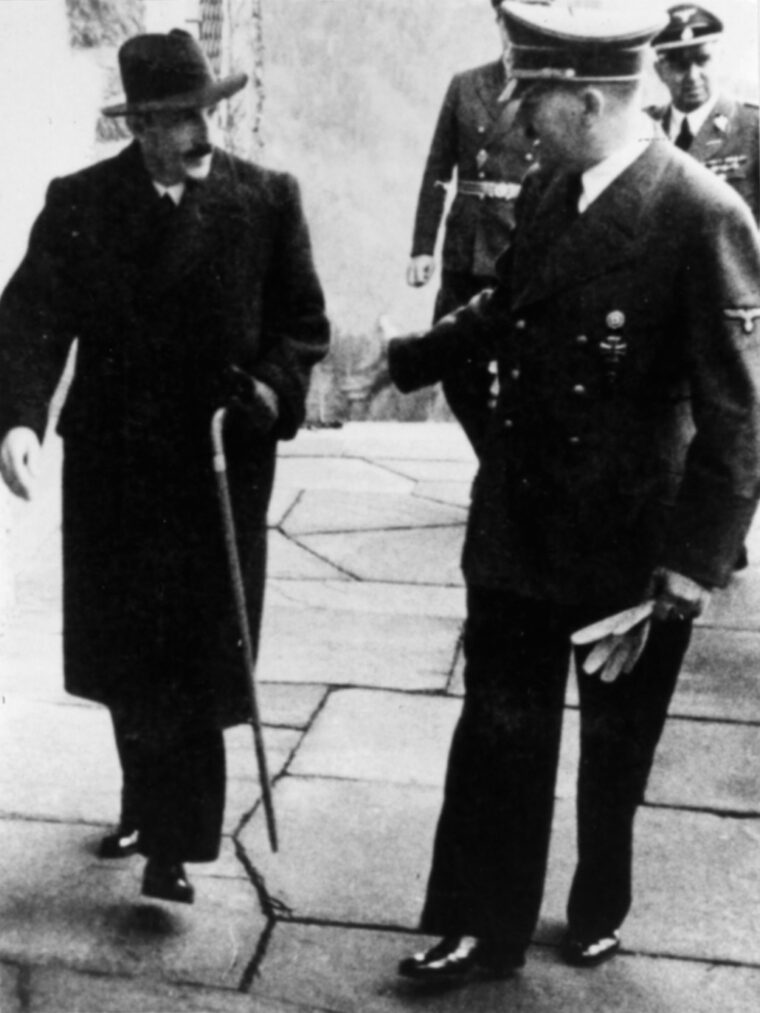
Boris’s father-in-law, Italian King Victor Emmanuel III, who had always loathed Hitler, feared kidnapping by a Nazi paratroop unit much more than capture by the Allies. At one point, Hitler had seriously contemplated kidnapping the Italian monarch, even going into the sacrosanct Vatican to get at him if necessary!
The long arm of Hitler’s revenge did ensnarl Princess Mafalda in its tentacles, however, as noted by King Boris’s biographer, Stephane Groueff, in his magnificent study, Crown of Thorns. He writes, “Princess Mafalda, who was married to Prince Philip of Hesse, arrived in Bulgaria only after King Boris’ death to attend the funeral, as all newspaper reports and photographs can attest. Hitler’s allegation that she came to Bulgaria before the King’s illness is completely false … Princess Mafalda died tragically in the Nazi prison camp of Buchenwald on Aug. 28, 1944.”
But could Hitler have been right? Was his fear of a Savoyard plot so far-fetched, even given that Mafalda’s own sister, Queen Giovanna, was married to the young, popular Boris? What would have been the motive?
Actually, there was a motive, the same as in the internal overthrow of Mussolini before an Allied invasion and German occupation of Italy took place—to save the country from destruction and the Italian dynasty from extinction. Even if the Italian royal family had plotted to deliver Bulgaria also to the Allies as they had Italy in 1943, they failed in their ultimate goals. Italy was devastated by both war and civil war during 1943-45, and the Savoyard monarchy was voted into exile in 1946 by the Italian people themselves in a plebiscite election.
If neither Hitler nor Goebbels was guilty of plotting the swift demise of Boris III, there were, however, other top Nazi leaders who had an interest in Bulgarian internal politics. These were men who were bitter rivals within the hierarchy of the Third Reich and each of whom had their own agents in Sofia reporting back to them.
These suspects included Nazi Germany’s number two man, Reich Marshal Hermann Goring, commander-in-chief of the Luftwaffe, and German Foreign Minister Joachim von Ribbentrop, both of whom had hosted Boris during his many hunting and diplomatic trips to the Reich. As it turned out, the King liked the gregarious Goring but despised the foreign minister as a man he considered overly vain, pompous, and stupid.
Indeed, on August 29, 1943, Adolf-Heinz Beckerle, an SA Obergruppenfuhrer (lieutenant general) and German ambassador to Sofia, in the face of the official explanation of the King’s death, coronary thrombosis complicated by an infarct, sent this top-secret report to his boss, von Ribbentrop:
“I asked the German doctors—deCrinis, Eppinger and Sajitz—to come and see me. They told me that they were sorry that during all this time they were unable to get in touch with me. They felt that they were kept, so to speak, prisoners at the palace, in order to prevent any news from leaking out. Even yesterday, after the King’s death, they found it impossible to come here. They understood that King Ferdinand (the King’s father and predecessor on the throne) and the Italian Royal Family had to be notified first.
“I Have the Impression That, in Spite of the Limited Scientific Hard Evidence, the Doctors are Privately Convinced of a Violent Death.”
“In addition, the entire diagnosis had been left to them. The Bulgarian doctors stayed in the background … The King was aware of the gravity of his condition and believed that … he would not live. The King thought that he had angina pectoris. He attributed it to the strains of an excursion to Mount Moussala, which he had undertaken the previous Wednesday.
“Because of suspicions, I asked the gentlemen if the illness and death could have been due to some outside cause (poison.) The three doctors answered immediately in the affirmative, invoking the similarity of the symptoms. Eppinger spoke of a ‘typical Balkan death.’ But could they say more? Could they reliably attribute the death to such cause? … An autopsy would have been necessary for that … I have the impression that, in spite of the limited scientific hard evidence, the doctors are privately convinced of a violent death. They told me that, because of professional secrecy, they will make this statement only to me.”
And yet, as came out later, there had indeed been a limited autopsy performed without Ambassador Beckerle’s knowledge. It focused on the heart and was done without the German physicians’ participation.
The question of an internal Bulgarian palace coup has also been raised in the matter of his majesty’s death. For one thing, his wife the queen was kept in the dark initially about his illness and especially its severity. She was only admitted into Boris’s sick chamber once he was actually dying. Also, as biographer Groueff pointed out, “The Queen, who, for emotional reasons, did not give her permission, was informed only after the autopsy had been completed. She never obtained a satisfactory explanation as to who ordered it …”
If there was a palace coup to overthrow Boris, install his son as a puppet ruler and put a shadow regency into power, all its members came to grief in February 1945. All three regents, together with virtually the entire Bulgarian government, were executed by the communists on the edge of a bomb crater in a corner of Sofia’s cemetery. The crater served as their common grave.
But if the trio of German doctors were “unable” to communicate with the representative of the German foreign office in Sofia, Ribbentrop’s man, they evidently found no such difficulty in keeping Reich Marshal Goring’s agent completely informed.
This was the German air attache, a member of Beckerle’s own staff Luftwaffe Colonel Karl-August von Schoenebeck, who was in constant, secret contact with both Goring and Hitler back in Nazi Germany. He was not in contact with von Ribbentrop, and this was surprisingly on the personal orders of King Boris himself.
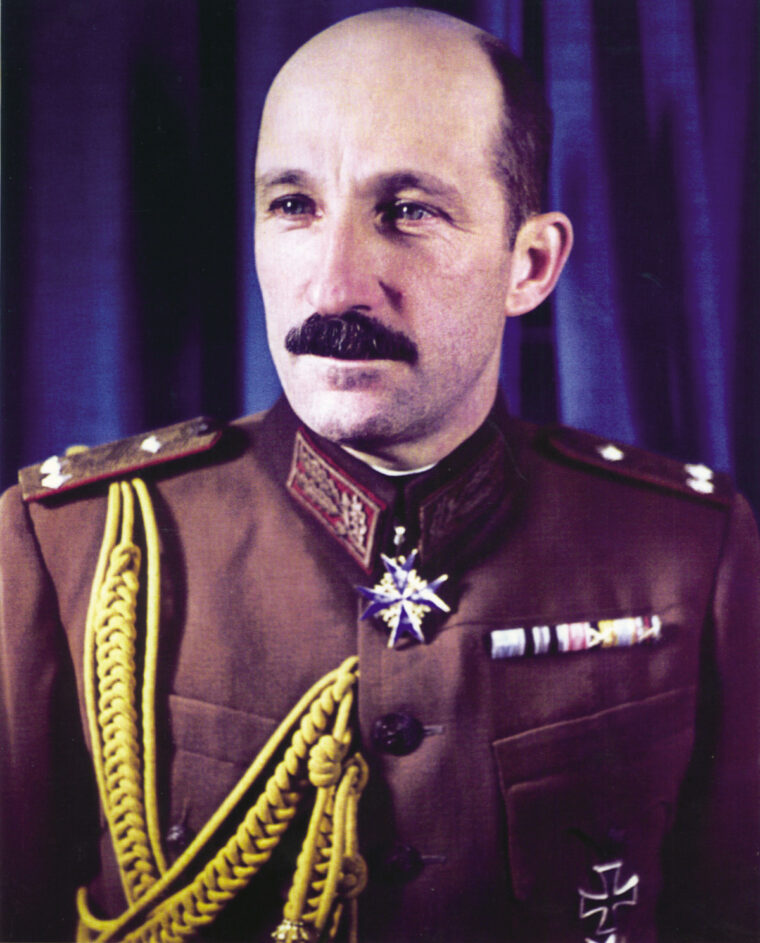
These reports were sent to Berlin via the embassy’s own cipher machine, and since the Poles had broken the German code via their Enigma device back in 1939, it is probable that Churchill knew about the King’s slow death even as he was gradually expiring. This fact was unknown to any of the German leaders at the time, and indeed it was not revealed until 1974.
Had the King’s death even been predicted? Von Schoenebeck’s diary entry for August 27, 1943, indicates that it had. “… I told the doctors that, at the end of May, information reached us from Turkey that the rumor circulated in certain circles there that King Boris would not live to September! I reported this highly disturbing information to the Bulgarian War Ministry, but, in my opinion, they did not take sufficient measures to protect their King. The Balkan lethargy was not shaken even by such alarming information …”
Could the King himself have even been a willing victim in the plot to kill him? By August 1943, his advisors agreed that he saw himself with no way out of the situation Bulgaria faced between the nutcracker from both East and West. What could he do to prevent his country from being destroyed?
The King might even have gone beyond being a willing victim to a suicide. To lend any credence to this view of Boris III, one must examine the troubled King’s state of mind during this crucial phase of World War II.
As a young man, Crown Prince Boris had fought in two Balkan wars as well as in World War I before being forced to succeed his abdicated father, King “Foxy” Ferdinand, late in 1918. Having witnessed both external war and internal civil war firsthand, the new monarch vowed never to commit Bulgaria to war again and kept his promise to the grave. Aside from these twin specters of war, what he feared most was a communist insurrection, but despite his loathing for Bolshevism, Boris was willing to make an accommodation with Stalin late in 1943 in order to spare Bulgaria from Soviet invasion and a Red regime in Sofia.
Although he adhered to the Axis pact, he was no puppet of Hitler, and as a former combat leader he was both superstitious and fatalistic about life in general. He had been too long in the shadow of his ruthless, domineering father, to whom he referred as “Le Monarque” all his days, to become truly assertive once he himself ascended to the throne.
Quiet by nature, shy and cautious, Boris confided in few people outside his immediate family circle.
He was no coward, though, and was also known as the most famous locomotive engineer in Bulgaria and all Europe, and raced just as fast. He came to the throne at age 24 and, although somewhat volatile when once he was made angry, kept a cool head under fire, such as early military coups led against him or during an assassin’s failed ambush while out for a royal drive.
“You’ll Never Make a Hitler Out of Me!”
He narrowly missed death in a Sofia church bombing that killed 160 and was designed to spark a communist revolution. In private, however, he continually threatened to either abdicate in frustration over succeeding governments or commit suicide. These recurring threats were always brushed off laughingly by his ministers and courtiers.
Boris III was a botanist and, although a hunter, a gentleman who loved his wife and children, abhorred torturing criminals and would never sign a death warrant during his 25-year reign. He privately called himself “The mender of broken dishes,” and proclaimed to his aides, “You’ll never make a Hitler out of me!” Unlike the European totalitarians Hitler, Stalin, and Mussolini, Boris believed in the rule of parliamentary democracy such as the government of Great Britain, which he admired. He attempted to promote such a government throughout his reign.
Equally at home in Balmoral Castle in England and at Hitler’s Berghof or Goring’s Karinhall estate in Germany, Boris had found Bulgaria inevitably drawn into the Axis web through an ever closer economic dependence on the Third Reich. Bulgaria’s geographic position between the West, Nazi Germany, and Soviet Russia also posed a dilemma. His policy was to remain as neutral as he could, along the lines of Sweden and Switzerland.
Indeed, right up to the time Hitler’s panzers crashed into Poland and launched World War II, Boris told both the Fuhrer and Goring that they seriously underestimated the West’s strength and that Germany would be defeated in a war against Britain and France just as she had been in World War I. In addition to his great power diplomacy abroad, the King also sought to lessen Balkan border tensions with his fellow monarchs and rivals, Yugoslavian King Alexander I (who was assassinated in 1934) and Romanian King Carol.
As a European war became imminent, the King remained firmly committed to keeping Bulgaria out of it. “When the horses start kicking each other in the stable,” he would quote a popular proverb, “the donkeys get hurt!” Overwhelmingly, his varied national population supported its King’s non-intervention policy until the day of his death.
Almost alone among European rulers in August 1939, he saw through the German-Soviet non-aggression pact as a temporary agreement and was able to make use of the cleavage between Nazi and Soviet interests in the meantime to gain contested territory for Bulgaria without a shooting war. Ultimately, though, he knew he would be forced to choose Hitler’s Tripartite Pact over alliance with either the West or the Soviets.
Knowing that Bulgaria was, indeed, ultimately powerless to stop German troops from coming in if they wanted to, and with the April 1941 examples of overrun Greece and Yugoslavia before his eyes, King Boris III joined the Axis, but only under condition that Bulgaria take no active part in the war. Seeing Bulgaria as a neutral foil against Turkey entering the war on the Allied side, Hitler reluctantly agreed to the cultured king’s terms—for a time.
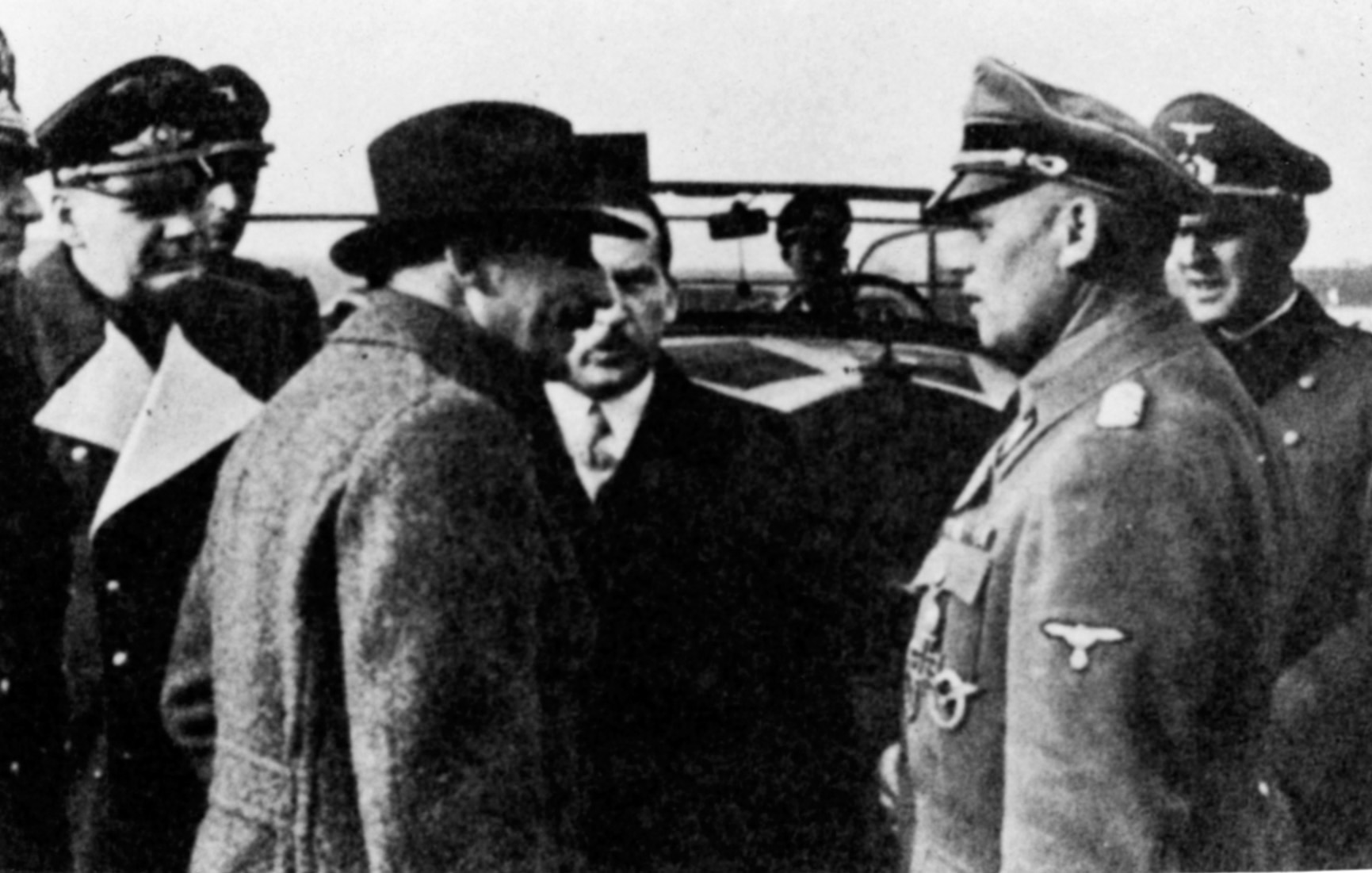
The truth was, as one of Boris’s aides later noted, Hitler felt uncomfortable in the King’s mere presence. “Here is His Majesty, perfectly at ease, aristocratic, nonchalantly elegant. Then there is Hitler, friendly but tense, like a soldier standing at attention in his captain’s presence; and then Ribbentrop, of course: haughty, sure of himself, and distant.”
Indeed, King Boris III was the only reigning monarch with whom former German Army Corporal Hitler met with as often both before and during the war. The ruler was one of the few to whom he confided in advance the most momentous secret of his life—that he was going to invade the Soviet Union. This was a war Boris was convinced from the start that Germany could not win. All Balkan nations joined in Hitler’s anti-communist crusade in Russia, except Bulgaria.
The King’s assessment turned out to be correct, as Hitler admitted to him privately on March 24, 1942, that the Germans had lost a million casualties in Russia — before Stalingrad! It was during this dark period that the King began again discussing both abdication and suicide should his non-interventionist stance fail, even while making strenuous efforts to save Bulgarian Jews from the Nazi death machine.
Early 1943 witnessed discreet but definite Bulgarian feelers to the Allies for a possible desertion of the Axis, just as the American ambassador to Sofia had privately cabled President Franklin Roosevelt some years before would happen if the Axis coalition started cracking. The fall of the Duce in July came as a thunderclap in Boris’s palace, and contact was established with Allen Dulles of the OSS (later the CIA).
Can the Mystery of King Boris’s Death Ever be Solved?
Finally, on August 14, 1943, as on other occasions, Hitler’s personal pilot, Colonel Hans Baur, and his personal aircraft flew Bulgaria’s king to the Fuhrer’s secluded Rastenburg headquarters for their final, fateful meeting of World War II, one that would help change the course of the war. The king, who loved to pilot speedboats, now took the aircraft’s controls on the way to see Hitler.
At Wolf’s Lair, the initial polite greetings degenerated into a stormy meeting with the Fuhrer in which Hitler at last demanded that Bulgaria take an active part in the war against the Soviets.
As King Boris later recounted to one of his aides, “Hitler went into a rage when I refused his demands about Russia. Screaming like a madman, he attacked me and Bulgaria in a torrent of accusations and threats. It was horrible! But I didn’t give in one inch. He tried to frighten me, but, instead, I calmly explained the situation … I saved you … even if I have to pay for it!”
What King Boris meant by that last sentence shall perhaps never be fully known, but the fact remains that the gentle, democratic King had stood his ground eyeball to eyeball with the most ruthless dictator, perhaps other than Stalin, in Europe. He won his point, at least for the time being.
After his return to Bulgaria with Colonel Baur at the controls of Hitler’s plane (as well as the King, again), Boris took his fateful trip to Mousalla, abandoning the rest of the royal hiking party to take off “… on a particularly steep shortcut.” His aide, Balan, secretly followed him and found the morose King “standing at the very edge of the rock, looking down into the precipice.”
Was Boris III thinking of a death leap? His aide was wondering, when his reverie was cut short by an angry shout from the startled King: “Didn’t I tell you not to follow me?” They went back down the hill together, but a few days later Boris complained to his brother while deer stalking, “I think I am suffering from angina pectoris.” His biographer states, “As he had a good knowledge of medicine, he used the term correctly to describe the syndrome characterized by constricting pain below the breastbone, usually precipitated by exertion or excitement,” Nothing was done, though.
Back in the capital on August 23, King Boris at last consulted his doctors, and at 7 pm told his sister, Evdokia, “You’ll see. I’ll die from angina pectoris!” A half hour later, the 49-year-old bald monarch was vomiting violently, and the initial thought of the courtiers present was that the King was having a severe gallbladder attack. The next day, von Schoenebeck contacted Goring to send a doctor right away. For the next two days, no one notified the Queen at their summer residence outside the capital.
By the 25th, heart problems had been correctly diagnosed. The Queen was told the following day that he was suffering from a coronary thrombosis. When told the date, the King muttered, “Oh, the 28th, on the 28th…” as if, somehow, he knew.
Already, even before the king’s death, the doctors were discussing among themselves the possibility of poisoning, not heart disease. After three days of illness, the first public bulletin about the king’s malady was released. Immediately, the people blamed Boris’s condition on his last trip to see the Fuhrer, although no one but his most trusted advisors knew what had transpired at Rastenburg.
The King survived the onset of pneumonia but fell into a fatal coma on August 28, 1943. At 4:22 pm that Saturday, King Boris III of Bulgaria died, thus beginning a swirl of rumor and innuendo that has not abated to the present day, and the actual cause of his death remains an unsolved mystery.
Towson, Maryland, author Blaine Taylor won several awards for his series of articles entitled Health in History in the former Maryland State Medical Journal.
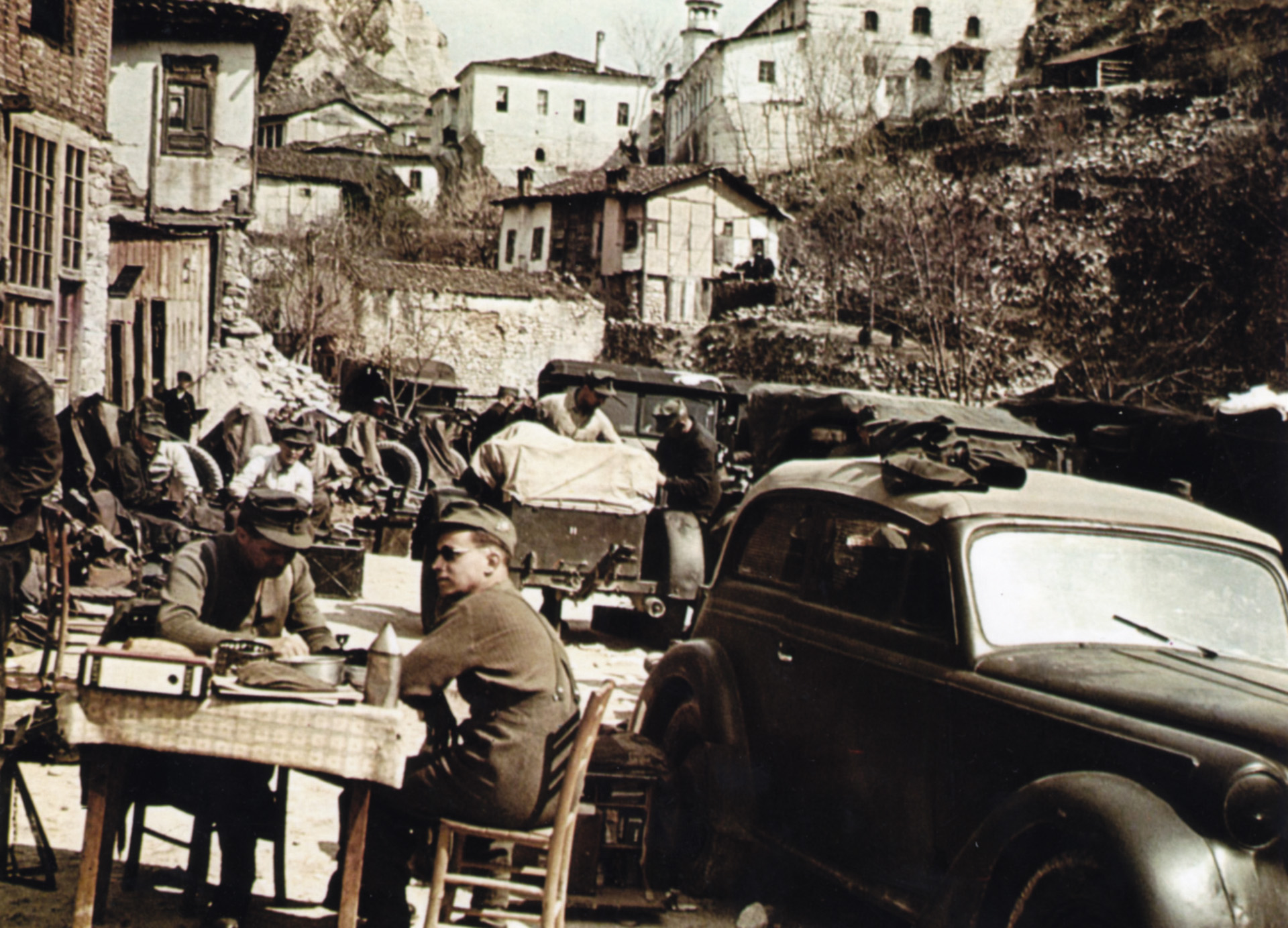

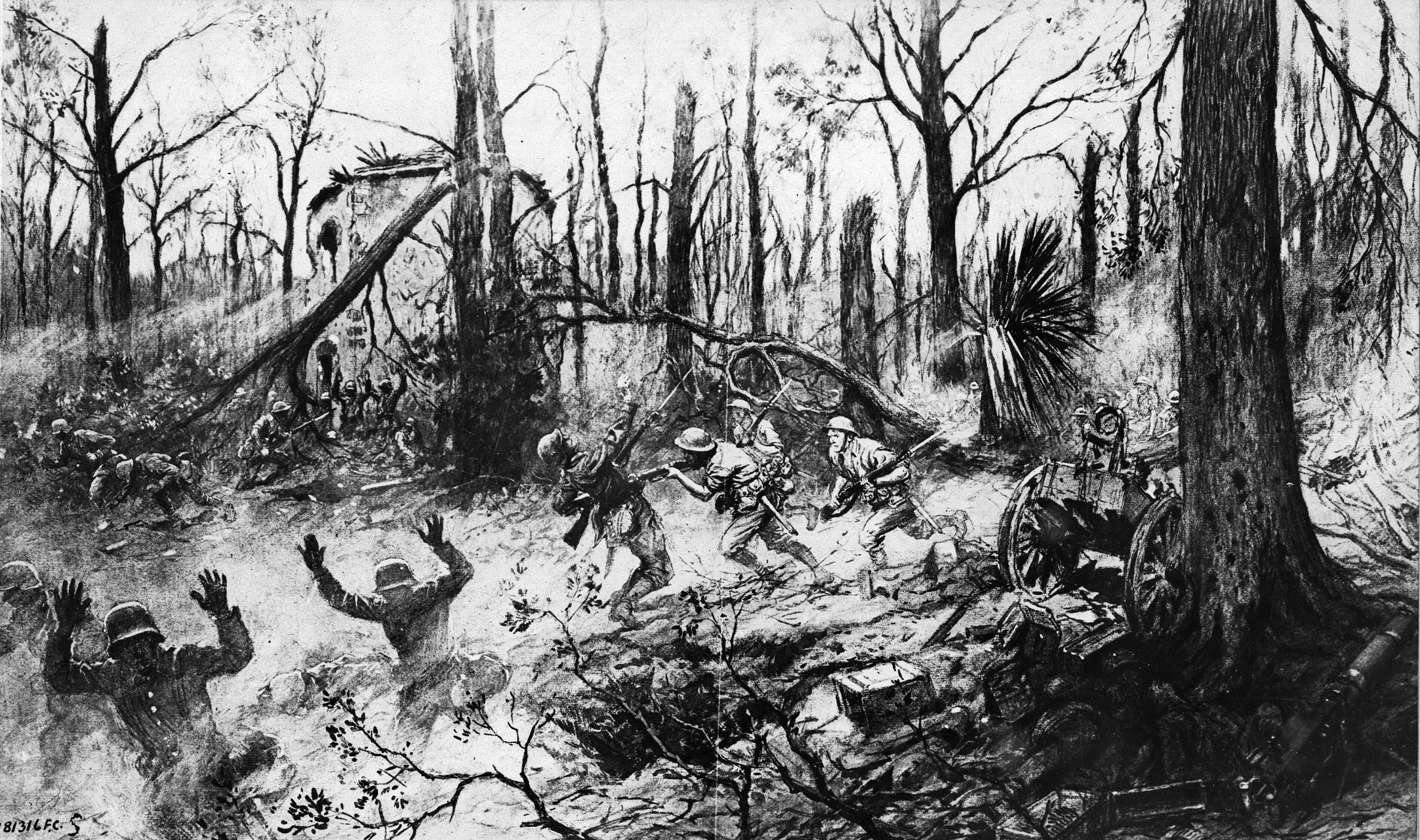
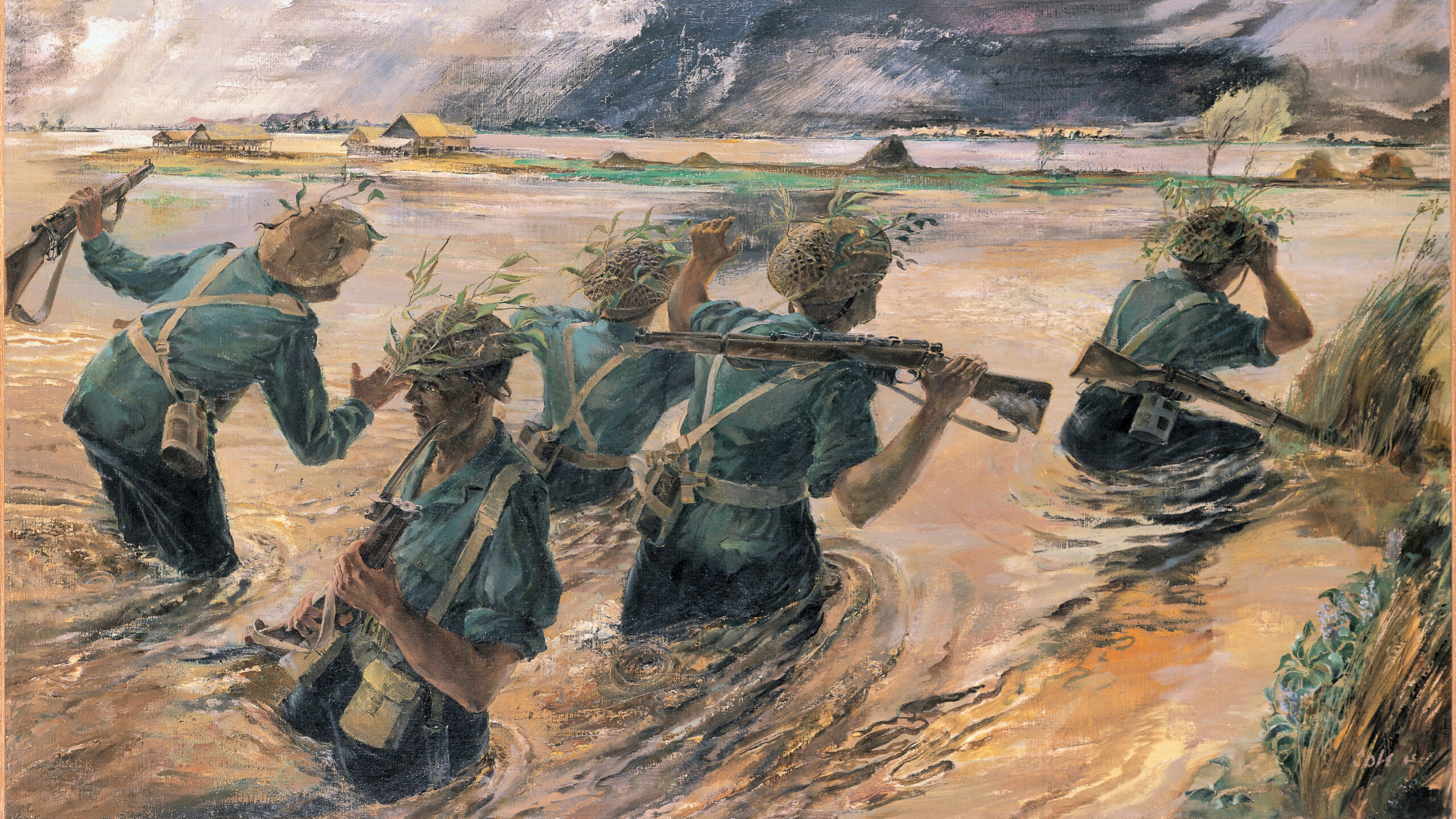


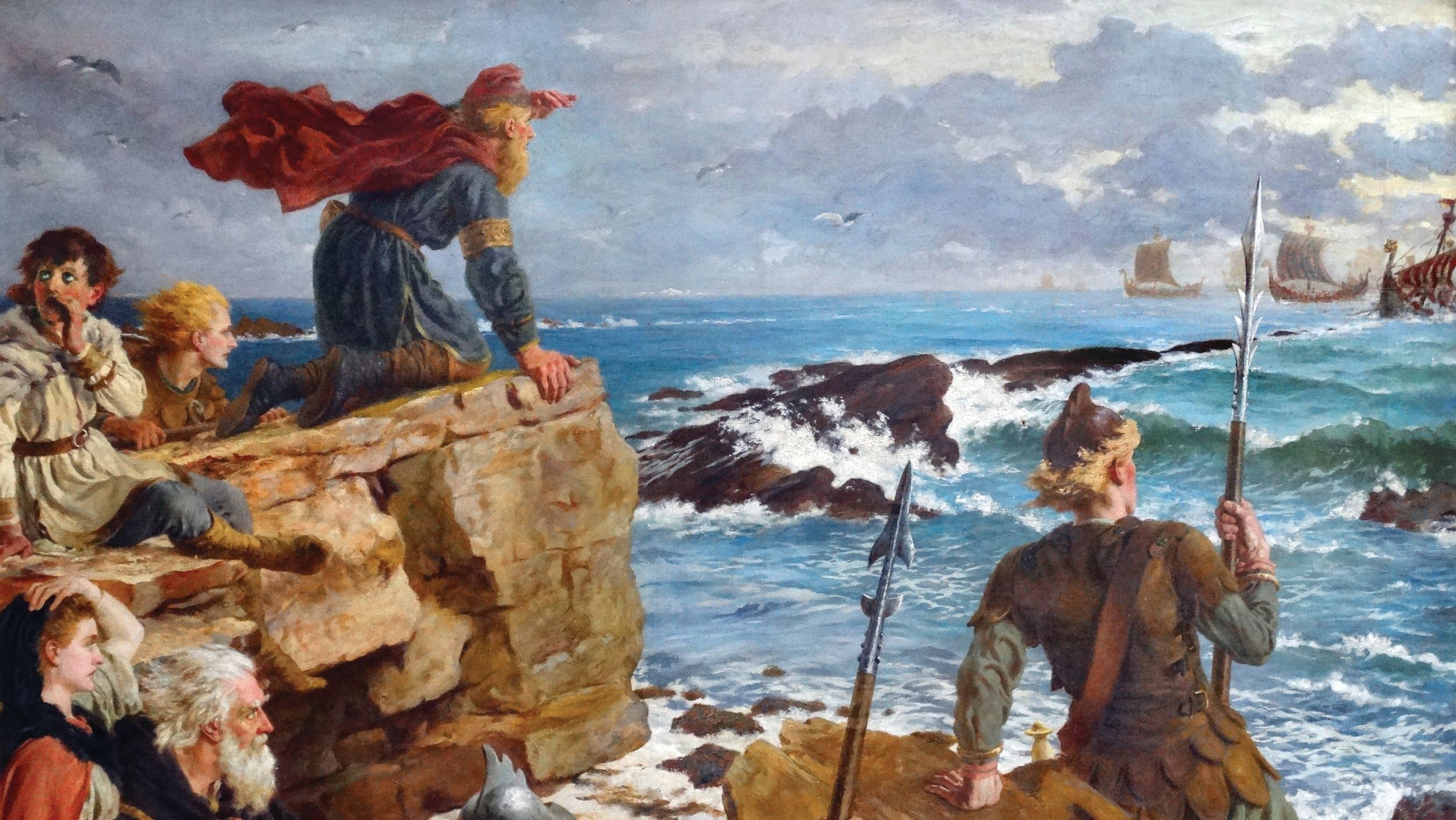
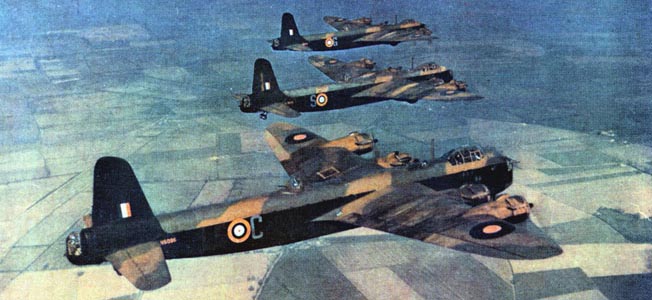

Join The Conversation
Comments
View All Comments